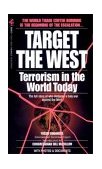|
| Home | About Kashmir Herald | |
Volume 4, No. 1 - July 2004 |
|
| Featured Article |
|
|
|
RPGT 2003: Flogging a Dead Horse
Ajai Sahni The US Department of State's (DoS) intrinsically flawed Patterns of Global Terrorism 2003 Report was dead on arrival at the moment of its release on May 26, 2004. Nevertheless, a promise of a miraculous resurrection had been briefly held out by the DoS, when they acknowledged some errors and omissions, promising a comprehensive review and revision. That revised report (RPGT 2003) has now been released and, unfortunately, reflects no more than the efforts of a shoddy mortician trying to make a badly disfigured corpse presentable for its final interment. The evident and gross internal errors of calculation have been eliminated in the revision, some incidents have been added, and some extreme errors of fact have been eliminated. Nevertheless, the essential content and structure of the report remains untouched, and Secretary of State Colin Powell asserted, "On balance, it is a good report. The narrative is sound and we're not changing any of the narrative." It is generally unrealistic to expect bureaucracies to be honest about their mistakes, and the current US Administration is an exception only in the fact that it has displayed an even more extraordinary propensity to distort reality than is generally the case. More dangerously, this Administration has demonstrated a parallel propensity to act on such distorted perceptions and intelligence, with the most manifestly disastrous consequences in Iraq. The same predilection is, however, playing out, perhaps more insidiously but just as insistently, in South Asia, where US policies continue to wink at very substantial patterns of terrorist activity and state support to such activity, apparently under the mistaken belief that movements that focus on targets within this region do not constitute an imminent danger to 'American interests', and that the 'franchised' war against terrorism that the Pervez Musharraf regime in Pakistan is currently engaged in, is sufficient to protect such interests. This, for one, wilfully ignores the continued presence in Pakistan of large groups of terrorists, terrorist training facilities, and the 'schools of hate' that have spawned much of the contemporary jihad, as well as significant evidence of continued, if selective, support by the Musharraf regime to at least some virulent terrorist groups and their leaders. Ambassador Cofer Black, the Coordinator for Counter-terrorism, under whose authority the Report is issued, assures us that, "my staff here and John's (John Brennan, Director Terrorism Threat Integration Centre) at TTIC, and others in the U.S. Government counterterrorism community have conducted a comprehensive review of the figures in the 2003 Patterns report." Despite the 'comprehensive review' by such an authoritative fraternity, however, the results are far from satisfactory, and suggest little more than reluctant tinkering to silence, at best, the more sympathetic among critics. Within the South Asian context, the revised report has added eight incidents in its chronology for India (five of these for the months of November and December, the period completely missed out by the original report), and excluded four minor incidents. This takes up total incidents to 53 - all but one located in Jammu & Kashmir (J&K) - and fatalities to 150 (up from 99 in the original report). This is still a far cry from the reality of thousands of terrorist incidents in the country, and even the 477 attacks on civilians, with 807 civilian fatalities, in J&K alone. RPGT 2003 corrects the error relating to the Sopat incident of September 9, in which a former state forest minister had been reported killed in PGT 2003. The Revised Report clarifies that the former minister was injured 'slightly', while one security officer was killed. The most significant addition to the chronology relates to the twin Mumbai blasts of August 25. RPGT however, gets the number of fatalities wrong again. The original report put the number killed at 97 in the captions to the photographs of the incidents; this has now been arbitrarily reduced to a round 40, a number that does not correspond to the final figure on any reliable Indian source (the actual fatalities were 52). It is, however, the only incident listed in India in which even qualified suspicion has been cast on a Pakistan-based terrorist group. The Revised Report notes, "The Mumbai police commissioner reportedly suspects Lashkar-e-Tayyiba, but no group has claimed responsibility." Not a single incident out of the 11 'notable omissions' listed by this writer [SAIR 48] has been included in the revised chronology for India. Pakistan remains a very safe country indeed, according to RPGT 2003. In fact, the revised chronology suggests that it just got a little safer, with the total number of 'significant incidents' in the country declining from four to two. The January 12 incident of a bomb 'safely defused' in a Kentucky Fried Chicken restaurant in Hyderabad, and the May 15 incidents involving "firecrackers fitted with timing devices" at various foreign owned petrol stations in Karachi, have been excluded. The chronology lists no 'significant' incidents of terrorism in Nepal, Bangladesh and Sri Lanka, each of which actually saw very significant terrorist activity. RPGT 2003 fails, equally, to acknowledge the extraordinary anti-terrorism initiative by the Royal Bhutan Government, which took military action to expel a number of Indian terrorist groups - including the United Liberation Front of Asom (ULFA), the National Democratic Front of Bodoland (NDFB) and the Kamtapur Liberation Organisation (KLO) - from camps long established on Bhutanese soil. RPGT 2003 has, once again, raised the question of intent. Were the errors motivated and deliberately intended to mislead, or are they a 'good faith' reflection of what is available to American intelligence and policy makers? One commentator in The New York Times, for instance, wonders, "Was the report's squishy math politically motivated? Well, the Bush administration has cooked the books in many areas, including budget projections, tax policy, environmental policy and stem cell research. Why wouldn't it do the same on terrorism?" Secretary Powell, however, asserts, "We have only one goal with this report, and that is to accurately reflect the pattern of terrorism that existed throughout the world during the period of the report. The report is not designed to make our efforts look better or worse, or terrorism look better or worse, but to provide the facts to the American people." If that is truly the case, there is even greater danger: cynical manipulation of information by those who are aware of facts may be immoral and unprincipled, but its purveyors would not be tempted to rely on such distorted intelligence flows while framing policy on critical issues; but the absence of credible intelligence at the decisive nodes of governance in the world's 'sole hyperpower' would be infinitely more perilous to the global future. Courtesy: South Asia Terrorism Portal |
 |
 |
 |
|
|
Archives
| Privacy Policy |
Copyrights
|
Contact
Us | |
||